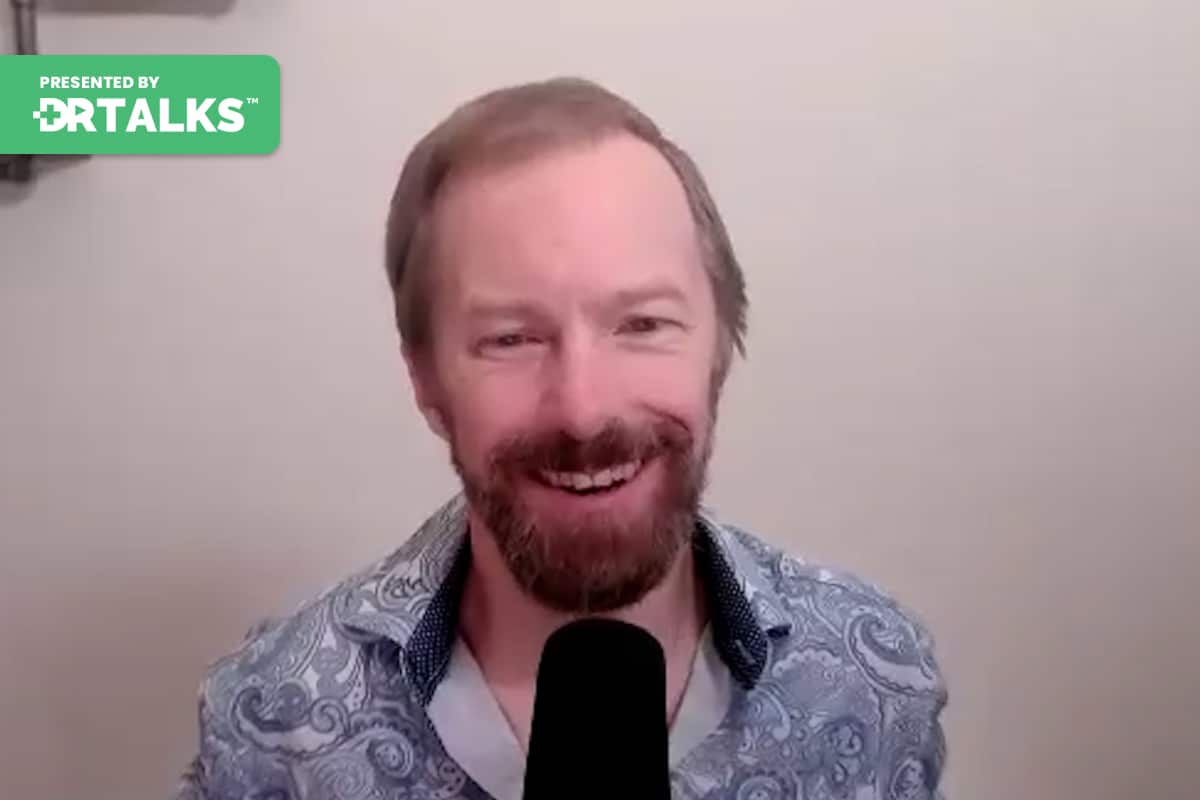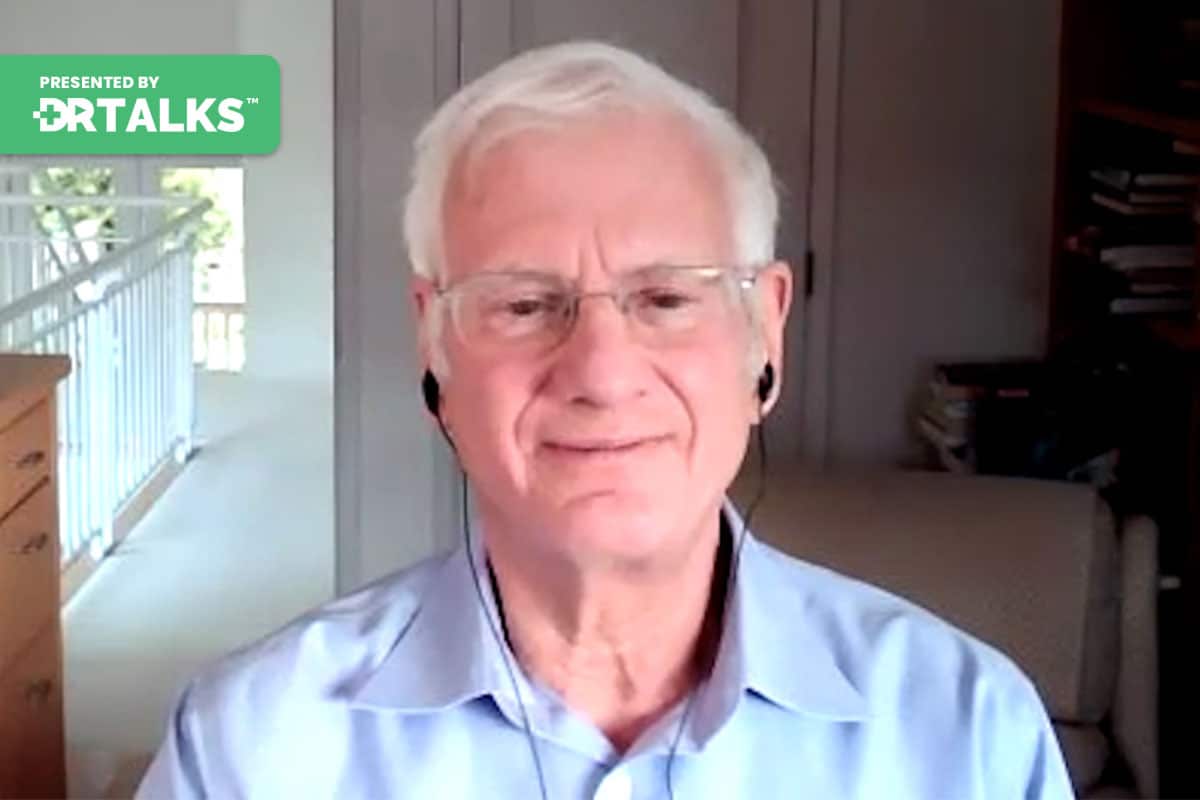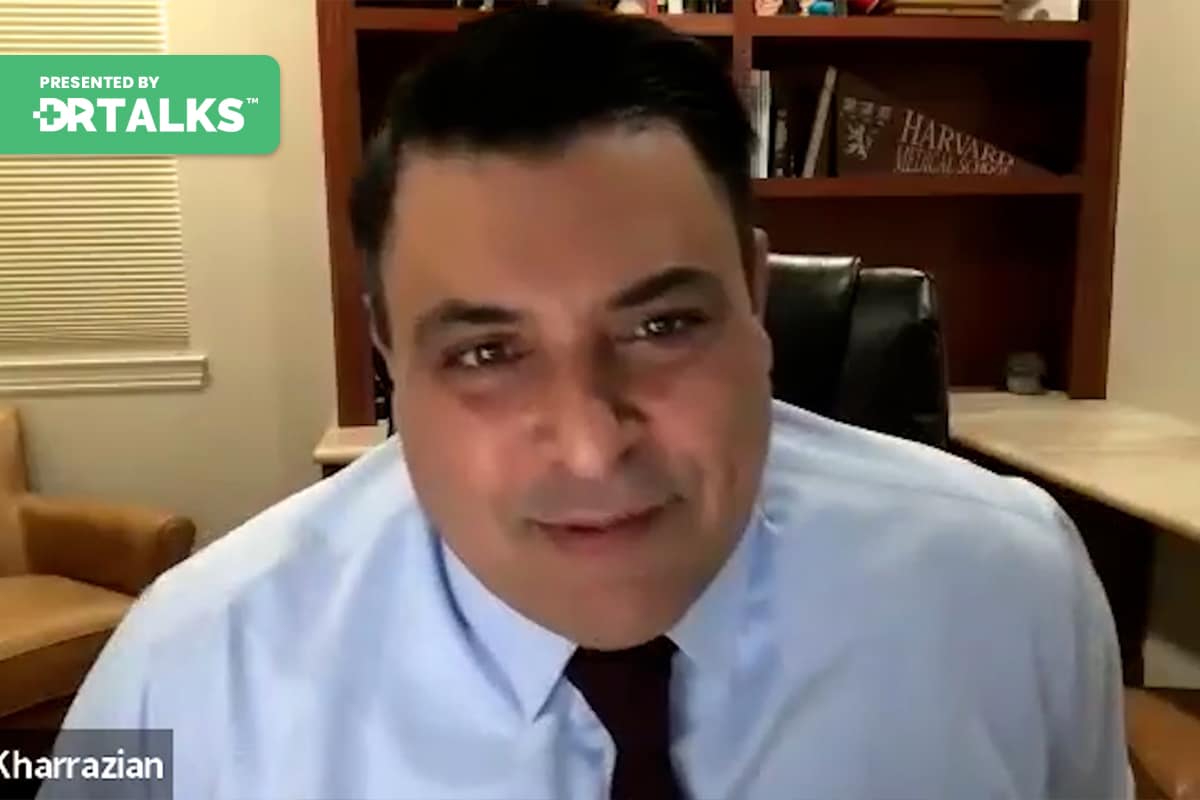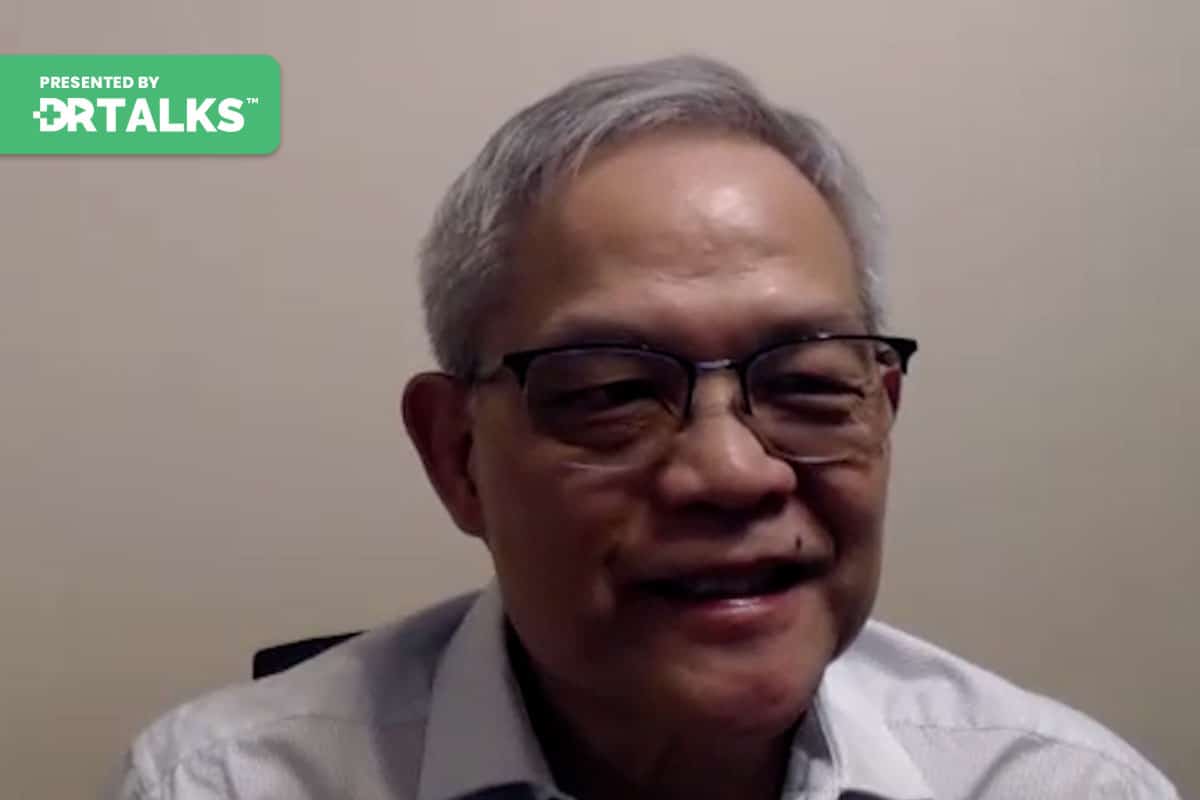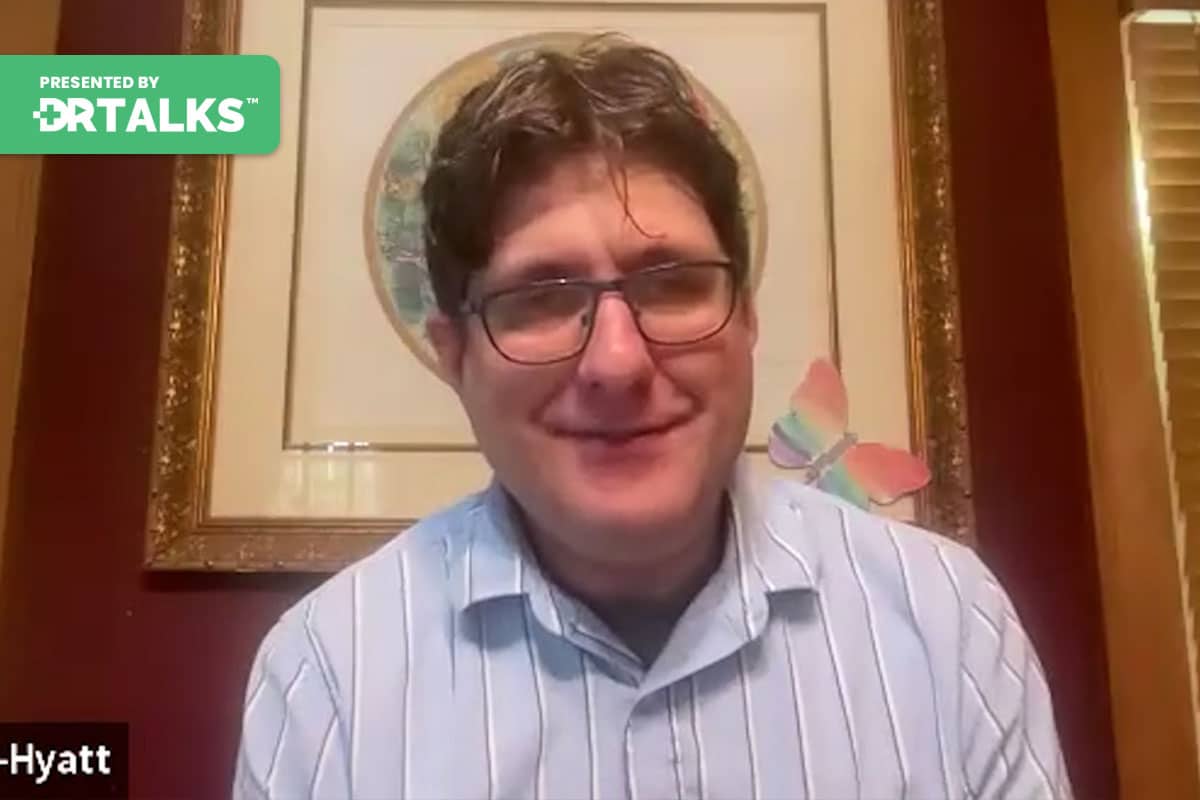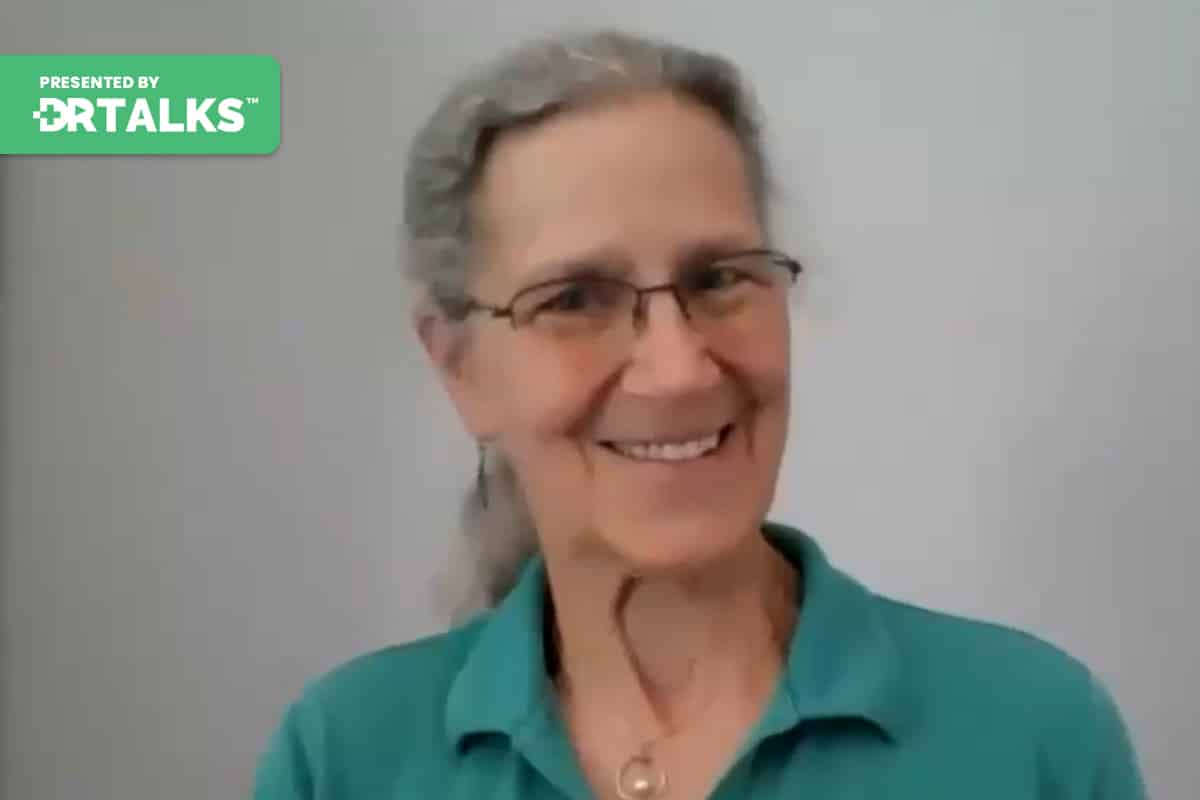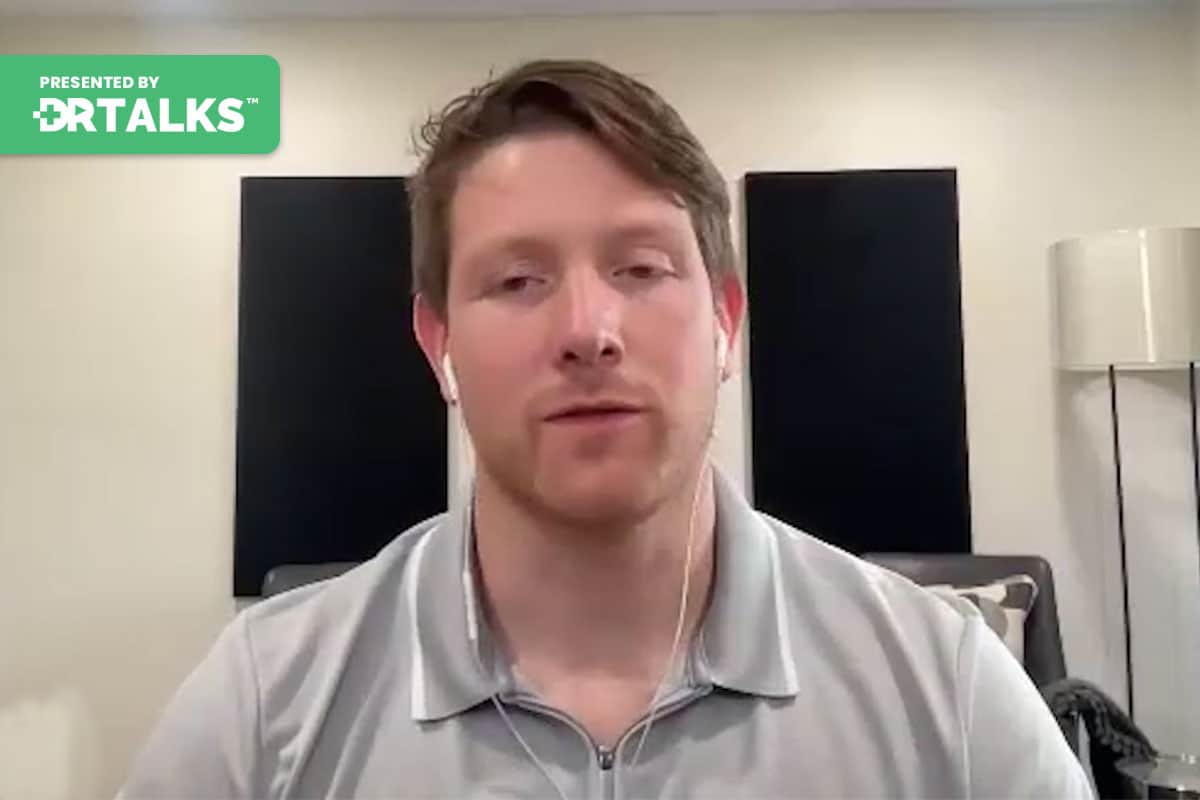Join the discussion below
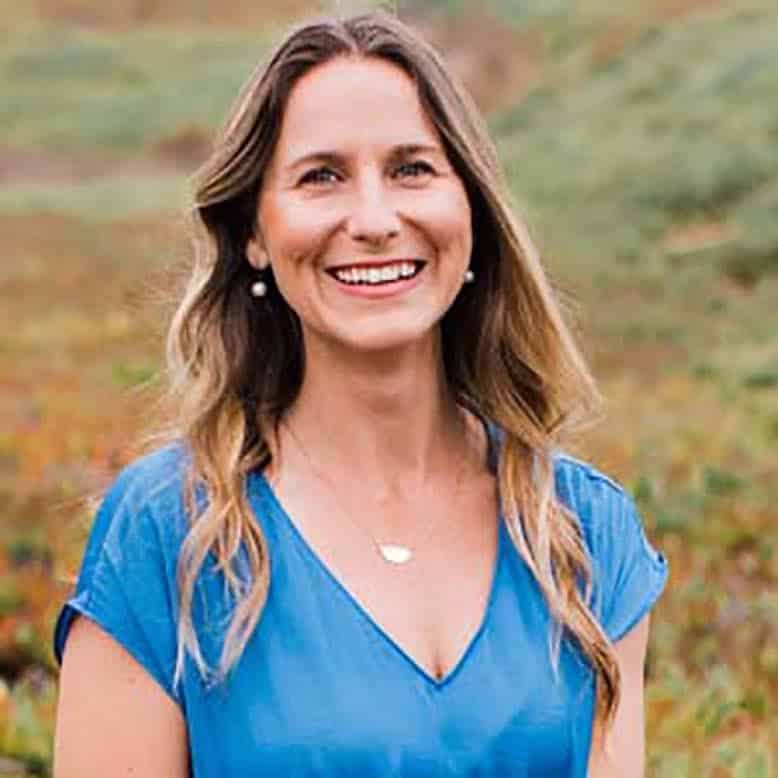
Dr. Heather Sandison is the founder of Solcere Health Clinic and Marama, the first residential care facility for the elderly of its kind. At Solcere, Dr. Sandison and her team of doctors and health coaches focus primarily on supporting patients looking to optimize cognitive function, prevent mental decline, and reverse... Read More
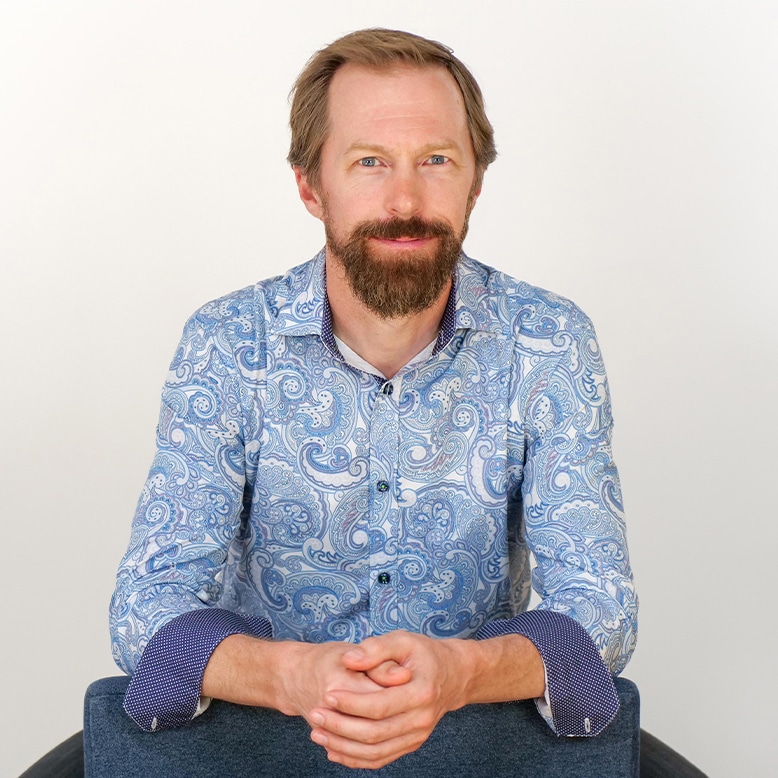
Dr. Tom treats some of the sickest, most sensitive patients suffering from chronic Lyme disease, tick-borne co-infections, mold illness as well as children with infection-induced autoimmune encephalitis (PANS/PANDAS). He focuses on optimizing the body’s self-healing systems in order to achieve optimal health with simple, natural interventions; utilizing more conventional approaches... Read More
Dr. Tom Moorcroft describes how to get the best sleep to deal with sleep disorders and Alzheimer’s.
- Discover what it’s like to feel energized and with a clear mind every time you wake up
- Learn why sleeping deeply and staying asleep longer is crucial for your overall well-being
- Understand key aspects that might be triggering your mold illness or allergic reactions
Related Topics
Alzheimers, Brain, Brain Detoxification, Brain Health, Cognitive Health, Dementia, Exercise, Gratitude, Mindset, Physiological Effects Of Sleep, Restful Sleep, SleepHeather Sandison, ND
Welcome to this episode of the Reverse Alzheimer’s Summit. I’m your host, Dr. Heather Sandison, and I’m delighted to introduce you to my friend Dr. Tom Moorcroft. He is an expert in Lyme disease, and he’s created a program to help providers understand how to best approach Lyme disease. But today, what I’ve asked him to talk about here today is the importance of sleep, not only for helping to your immune system so you can get up and over these chronic infections that might be affecting your brain, but specifically for your brain and cognitive function. Tom, thanks so much for joining us.
Thomas Moorcroft, DO
Hey, Heather, thanks for having me. I’m really excited to be chatting about this super important topic.
Heather Sandison, ND
So you’ve been in practice for two decades. You’ve been treating very complex, very sensitive patients, and you have learned more than most, I think, the importance of sleep. Can you just kind of talk about a few of those components and what’s going on when we sleep physiologically?
Thomas Moorcroft, DO
Yeah, you know, it’s so interesting because, you know, in my background, I had the issues of Lyme disease and babesiosis and heavy metals toxicity. But one of the biggest things that I found that was problematic for me was my sleep. It just I kind of at one point, it didn’t matter whether I slept 12 hours, 18 hours, 4 hours. I was just, like tired and felt crappy, couldn’t think. And so then I was like, someone had said, Hey, why don’t you just sleep when you’re dead like the rest of us? And I was like, Oh, that’s a really good idea, because sleep wasn’t helping me. But fast forward a bit, I learned the importance of sleep and when I actually the turning point in getting better from Lyme disease and heavy metal toxicity and being able to detoxify my brain and the rest of my body actually was when I was able to get better sleep. And so when I grew up, we were talking about what? Why do we need to sleep? And a lot of people didn’t even know why, right? Like, so when we look at the research that came out, is it really it looks like sleep has to major probably has way more functions is but two main things it allows us to solidify our memories. So it’s a place where if we want to remember more, we actually need to sleep. Because part of creating a long term memory is actually going to sleep and allowing the body and the brain to do all this wonderful work it does.
The other part that we learned, though, is there’s this concept, you know, we have this fluid around our brain called the cerebrospinal fluid. And we just kind of thought that by magic and osmosis like that would somehow help clean up the brain a little bit, and then our body would kind of process it. But it was very rudimentary. And I mean, this is literally we were talking this way up until like around 2010, 2012, when we finally because of advances in technology and also some researchers who said, hey, when we’re kind of looking at these animals or studying their brain, we’re being not delicate enough and we’re missing the anatomy. And what they found was a system of cleansing of the brain that they call it now called the lymphatic system. So in our arms, in our legs and our chest, we kind of I think a lot of us are familiar with the concept of Lymphatics and everybody. Oh, we have lymph nodes. And then this system helps drain the toxins out of the body. But in the brain, we didn’t find any of these you know, these true lymphatic channels. But what they found was if we had we have this system that takes that takes advantage of fluid, right? So immediately I’m thinking cerebrospinal fluid, interstitial fluid, more than 99% water.
So one of the things I was saying about is, oh, hydration is important, but this system starts near arterials and it moves through the substance of the brain to the vein yours, and then it drains out. So it’s essentially a fluid wave that comes through and cleans your brain and it takes out things like tau protein and amyloid beta. So a lot of the toxic substances that build up. And what I find really interesting when we study this is we I think and I mean, you know, this and teach this better than anyone I’ve met is like amyloid is not necessarily bad. Right. It’s necessary for the brain to heal and rejuvenate to a point and then it needs to come down. And so what we find is this system of cleansing, this beautiful fluid wave that moves through the brain and cleans it. It’s active primarily during sleep. And so depending upon which researcher you look at, 70 to 90% of our brain detoxification is happening during sleep and they think it’s mostly deep sleep. So the beauty of this is if we can get ourselves to sleep, then over the next couple of days to weeks to months, we see this clearing. And for me, that’s what I exactly what I saw was like the first month or two of real good sleep. I was worse. Like I was just tired and foggy or and I was like, wow, am I doing something wrong? And then on the tail end of that, though, I started seeing that later in the day, I was getting more energy than my brain was getting more clear. And after about ten months, I was waking up feeling great and my brain was super clear. Now, the thing was, I didn’t sleep well for about eight years, so ten months isn’t really that long. But anyway, that’s what this system is so beautiful and it’s just simple sleeping. So when people ask me, What’s the best supplement for detoxing my brain, I’m like, going to sleep and getting really good sleep.
Heather Sandison, ND
Really prioritizing your sleep. So what do you recommend to patients in terms of, you know, bedtime routine and just sort of the logistics of like how you’re saying go get good sleep every night. I don’t need to do that.
Thomas Moorcroft, DO
Right. Well, I think the first thing is your sleep for tonight starts this morning. So I like when people get up at a relatively regular time. If they can get out and get some fresh air and some sunshine and move your body a little bit. So I have a morning routine like today it’s pouring outside. So, you know, I don’t typically go out. I mean, sometimes I actually do go out because we have dogs, we have to walk. But I don’t typically like to do my morning routine when it’s, you know, a monsoon, but you can do it inside and get some natural light stimulation. But, you know, I have a morning routine where I just get up and I admittedly I’m more of a mid to late day mover, but in the morning it’s so important to start moving that I have a routine where I do some just some simple swaying of my arms, you know, kind of almost like a lot of people think of taichi or qigong, and I’m just kind of moving a little bit really comfortably. And then I do shaking. And so shaking is a really, you know, calming type of thing. And I just like to start off the day, but it gets everything moving. It moves the lymphatics in my body and it just gets my breath up a little bit. And then, you know, I sit down and kind of contemplate what my day is going to look like. And then I kind of go about my day and I like to do exercise on a regular basis so that I’m tired at night and then, you know, but when it gets towards the end of the day, I have a routine where I sit down and I write down three things that went well during the day and then three things that are going to go well tomorrow. And then I just focus on those and I’m just like, I have a little gratitude for that. And what’s interesting is I.
Heather Sandison, ND
Actually love this one. I want to double click on it. I have a four year old daughter and ever since you told me about this time, this like simple wins, three wins for today, three wins for tomorrow. And my daughter and I do this before she goes to bed. We talk about three things she’s that they’re grateful for happy happened during the day and then we look forward to tomorrow and the things that she you know, she’s excited about a four year old can do this right. Those things that’s so accessible and totally change your mind, changes your mindset. And I think is I think I will just speak to how impressive it is in terms of setting the stage for restful sleep to be in that gratitude mindset.
Thomas Moorcroft, DO
Yeah. And I think that that’s really the key because when we look at people have a hard time going to sleep. A lot of my government, I have insomnia. This isn’t going to work. I’ve tried that. I’ve heard all of it. I’ve done all of it. I was that person. I treat those people and I will tell you, like you just said, had Heather, this is so powerful and it’s usually within the first three or four days. But the piece of gratitude that’s so important, it’s almost like if if sipping a glass of fine wine or having a piece of food that just moves you to this emotional level where you’re in a different place, you want to savor these really small moments during your day because the sooner as soon as you do that, then you start to notice that there’s actually more good in your day than bad, or you’re moving the momentum in the direction of that because it’s like our body, our brain is meant to focus on negative. It’s protective mechanism. But we need to in our in our current society, we’re not worried about the occasional saber tooth tiger or the occasional warring tribe coming into our village. It’s like we’re hit all day, every day by these things that are kind of like overwhelming. So when we focus on these little things, we find that the way the nervous system can get out of fight flight or that freeze state that so many people know about these days where you’re overwhelmed by your stress.
So much or your illness, that fight or flight means you think you can win. When you look at freeze, it’s like what happens when you get caught by the saber tooth tiger and you’re in its mouth or you’re overwhelmed by stuff and you’re in the corner and you go, I can’t win. So now you’re frozen the way to get out of any of those states from a physiologic brain chemistry and nervous system perspective, is to literally feel gratitude. So we’re kind of tricking ourselves. So when you do this at night and you get a little gratitude and then a little more gratitude, when you start to do it, it becomes a trigger for going parasympathetic, which ultimately, if you trust Heather and I will allow you to get to sleep a lot easier. And then what’s beautiful is the things for tomorrow are things you’re like my conscious mind when I when I kind of last night decided how this interview was going to go and how my day was going to go, and the beauty and all the people that are going to be able to implement this immediately said, you know what, people are not going to believe this and all you’re going to be RUSH And you just get into that conscious mind of trying to protect you.
And not in the negative part. But the beauty is when we practice this and after a week or two, we get deeper and deeper asleep, our conscious mind separates from us when we’re sleeping and then we can plug in the source, whatever you like to call that. You can add any word, God or life, or whatever it is to you. We all have this life force in us, and when we can connect and it’s all around us and when we can connect to that, then were open a new healing possibilities. And so then stuff you’ll start to see the coincidences in your day becoming more and more common. And then this is all like compound interest with investing or what we used to do when we put money in our savings account is we would it would build on itself. And so every night that you practice this, you’ll see more and more gratitude come in, you’ll get more and more parasympathetic, and then ultimately you’re going to start seeing that your day flows smoother. So we’re getting you out of a lot of the stress that you have in your day by getting you to go to sleep. And so we create this beautiful, positive feedback loop that ultimately right now we’re talking about, hey, how do we clean our brain better while we sleep deeper, you know? But it’s going to start to decrease your stress throughout the day because you’re going to notice the negative and you’re going to be noticing more and more of the positive. So it’s a lot of fun to play with.
Heather Sandison, ND
I have a few other ideas that I think are really practical for people and that I recommend to my patients and I want a rhythm by you. Like while we’re having this conversation about sleep optimization, so what is light exposure and using potentially red light before you go to sleep or having a red light? I actually had patients tell me that having a red night light, so a small amount of red late at night or orange late at night has helped them to sleep better than just pure darkness. And this is kind of based on those ideas of like paleo or ancestral sort of lifestyles where there probably was a fire around four hunter gatherer ancestors. And so sleeping with a little bit of orange or red light, maybe that does make a little sense and maybe something worth trying. The other thing is calorie restricting or, you know, people I see people in two camps, there’s either the fasting before sleep or the a little bit of protein or fat right before bed, actually helps people get through the night. And so I’m wondering if you have a way to discern who’s better and what about temperature? You know, some people say that they sleep better in the seventies. Most people I find sleep better in like the high sixties. Wait, what have you noticed about light temperature and calorie consumption at night?
Thomas Moorcroft, DO
Well, I think you hit on something that’s really important, is is that there’s an individuality to all of this. Right. With that said, I do think that most people sleep better in a cooler temperature. If you have things like a bit of anxiety like my or you’re just a little restless for whatever reason. Some people like to have a weighted blanket, you know, so and a lot of times for me, I like I don’t have a weighted blanket, but I like blankets on my body, you know, and I always have. So I like the temperature cooler, so I’m not overheating. So maybe if you’re a sheep person, 73 is okay, 68, 67, sometimes even lower, is kind of our house. So I do think that like there’s definitely evidence that somewhere in that 65 to 69 range a lot of people do really well there and it’s and it’s helpful it’s I like red light therapy quite a bit. I actually was looking around, I’ve got the box for my red light therapy next day, but we have our red light therapy panel upstairs, you know, by where my bedroom is. And we, my daughter and I and my wife use a lot of it at night as well. And I think mostly it’s convenient. But the thing that’s interesting about it is if we have bright lights on and we don’t use our blue blocker at night and we get that blue light, we definitely see sleep disruption. But the red light, I can have that all over the place on my leg, right up near my face on the table, just shining at us. And I would say that I’ve noticed it’s definitely at least neutral to improve sleep. And thankfully now I spent now a decade and a half optimizing my sleep. So I don’t have that issue. But I think red light certainly and I’m actually in a third camp with sleep, which is kind of funny because so and our camp also has a campfire, but I think I actually my personal body does best if I eat right before I go to sleep. And I would say I eat probably two thirds of my daily calories before I go to bed within an hour.
Heather Sandison, ND
Wow. Okay. Right. And everyone. No, I’m.
Thomas Moorcroft, DO
Breaking the rules.
Heather Sandison, ND
And are breaking all the rules right now. But I think, you know, this kind of leads me to I’m wearing my ring right now that tracks my sleep. I look at it every morning to see, you know, what changed and what’s working, what’s not. And that individuality is like, you know, we can talk, okay, about what works for most people or what works for my patients or what works for you as an individual, but understanding your own body. And we live in a time where you can get the feedback. And in almost real time, you know, you can get in the morning when you can wake up, you can get the feedback of what you did last night and how that impacted your sleep or what you did yesterday. You’re using that to make little speaks, to optimize your sleep. Over time, it’s going to add up to big changes in the trajectory of your health.
Thomas Moorcroft, DO
And I think with the food now isn’t like I don’t have reflux, I don’t have a hiatal hernia. So if you have those things, that’s one of the things where, hey, check with your doctor, obviously. But it it’s it’s I experimented and I’ve always kind of been this way. But we do know that some people do a lot better if they fast, they sleep a lot deeper. Other people and, you know, do better if they eat like later in the evening. And for me, I look at physiology. What happens when am I digesting when? Well, you know that on Thanksgiving or Christmas or whatever holiday you like to celebrate where you have a lot of food, you typically want to go to sleep right away after the meal. And so our body digests food when it’s in a parasympathetic state. So a big bolus of food puts you in a parasympathetic state. So I’m like, Well, hey, I want to sleep. That’s a parasympathetic thing. And I want my digestion in to be optimal. When would that be? Oh, that’s when I’m parasympathetic.
So I just double down on that and it works for me. But I do know some people wear 3 hours before bed fasting 3 hours before bed is critical for good sleep. So again, work with your practitioner for your individuality, right? I think it’s just so critical, but I also fast most days you know so I’m my you know so I’m doing a lot of intermittent fasting because it’s just natural for me and I enjoy it. And if I do eat earlier in the day, I like a smaller, you know, meal with maybe more protein so that I can go out and do what I want to do and not have to take a nap. And then whether I’m eating at 5 p.m. or nine, you know, it it just kind of you have to figure out what works for you. And the other thing is my metabolism is such that for whatever reason, I trained myself early in the day. I’m not really hungry, but at night I’m like metabolic tornado. So I’m very hungry if I go for about an hour at night. So that’s one of the reasons. So this is an opportunity to really listen to your unique physiology and apply science to you rather than dictating the way you should do things based upon what someone else said, based on science.
Heather Sandison, ND
And so you and I both are big fans of the Samina Beds. Tell me about your extremes. I know you’ve been sleeping on one for nearly a decade, I think. Yeah. So to find Samina and when, what stands out about it for you?
Thomas Moorcroft, DO
Well, so the first thing is, I was at a conference and there’s this crazy guy, Clowes, who’s from Germany, and he’s like, he’s in the corner with his bed. And I’m like, What? Medical conference has a bed? And I go over and he’s jumping up and down on this bed, and I’m like, and he’s got, like, this glass of water on the other side and it’s not moving. And I was like, What is going on here? And, you know, I go talk to him and the beauty of it is the whole thing is set up so that each person sleeping on Samina gets a unique, individualized sleep experience. So if it’s like you and your spouse or you and your child, they’re sharing a bed or whoever is in your bed. You can literally the way they’re set up with two different sides is you can roll all around, you can literally jump up and down and the other side of the bed doesn’t move. So if you go to if you have if you sleep with someone who’s kind of a restless sleeper and they’re disturbing you, this kind of just removes all of that, you know?
And it’s also the way it’s set up is you can you don’t fall in the crack in the middle. Right. It’s just it’s separate on the mattress. And then you have this really nice sort of wall pad that makes it kind of a twosome now, like a regular like a king bed. Right. And so what’s really cool is I looked at why that happens and they’ve got these slats and they’ve got this nice latex rubber. And when you move on it as an osteopathic physician, the other thing I want to do is not only do I want you to sleep deeply, but I want you to stay asleep. And so many people, once they’re sleeping for a while because they’re in this weird position, because their bed is so not personalized and firm or too soft, they’re not aligned bio mechanically. And so they’re getting stiff and sore and with simian. And whether you’re on your back, your side, or some people who feel like they have to sleep on their belly, which I don’t really recommend, it’s very but if you look at sleep position for brain detoxification, we know that side lying is probably the best and also a slight incline where the head is above the feet is optimal for brain detoxification. Your back is second best and on your belly is by far the worst position in and this is just based on, you know, animal studies looking at detoxification directly.
Heather Sandison, ND
So positioning this to mean a bed has that option for elevation sleep.
Thomas Moorcroft, DO
And so yeah, I actually have a bed where I can have a zero degree. So a flat, a three degree or a five degree slope and it’s a little weird. I would start on three, you know, and then go up to five fives a little bit. It feels like you’re really going to slide off for the first week, but then it’s like unbelievable. Because if you think about it, most people, the most pressure you experience in your brain is while you’re sleeping. Because when you’re up in gravity. Mm Yeah. And so it’s really kind of interesting. And then the other part that’s cool is I deal with a lot of people with chronic environmental exposures, things like mold, toxins, and I know that you and Dr. Bredeson talked so much about mold. Well, one of the things we run into is that beds can traditional beds get wet. So here’s the thing. You sleep and you sweat an average of a half a liter fluid per night, whether you’re a sweater or not a sweater. And, you know, it’s like, so I make my bed in the evening, not in the morning, because I want to leave my bed sheets down so it all evaporates. But the thing is, with the swimming and the way it’s made, it’s got the it doesn’t absorb all that. It lets the water off really easily. And most of the mattress is not what you would consider a traditional mattress. It’s all open.
So I’m not getting the mold growth. The other thing that’s really gross is and close taught me this, right? This is so I get on this bed and I’m laying on it. I’m like, this thing is like a cloud and it feels amazing. And I’m perfectly aligned. My breathing opens up as soon as I lay on it and I’m like, I got to buy this bed, like. And then like I came home and like, we’re going to buy this really expensive sleep system, but I spend more time sleeping than I spend doing anything else, you know? But why do we spend, like 80,000 or 40,000 or $20,000 on a car? But we don’t want to invest in a really good mattress system. And so for me, it’s really not a mattress, it’s a sleep system. And so literally, I mean, it’s the most amazing thing. My whole family sleeps on it. And then the other part that Clouds taught me, which was really good, was I was trying to get the most natural. So we had like the, the futon that had all the organic this and it didn’t have any flame retardant and it was like it was as natural and as safe as you can get and you would flip it every couple of months because you’re so, you know, to just make sure that you’re not bedding the pet so that you could get the cotton, like, put out. But I noticed after a little while, it was heavier and heavier and heavier and I meat classes show me all this data because between the moisture and dust mites that get in there, you’re literally getting dust mites poop in your mattress that stays.
And I at that point, I was about to vomit on myself. So the thing is, there’s nowhere in the seminar system for that to happen. So I get rid of the dust mites because if you do a lot of allergy testing on people and food sensitivities, a lot of times people just come up with dust mites and like, where’s that? I’m like, it’s in your bed, right? That’s so we get rid of the mold exposure problem, we get rid of the dust mite problem. And by sleeping in this biomechanical sound position, you’re in great shape. And it really optimized like my brain function and my energy, which was already at that point, I thought, perfect, right? I was better than I had ever been and it just up my level again. So that’s why we all do that. And one other piece to sleep I always tell people is it’s really important if you can turn off your wi fi at night because wi fi is trying to zap your brain essentially. And if you it literally causes changes in your blood cells where they kind of clump together as if you had lupus or rheumatoid arthritis. It’s causing this inflammation very similar to autoimmune conditions. The other trick, though, that I did is I went all in on my stamina system. And just before I you know, it was just it felt right to me. And so I also got their locus on a grounding pad, which can help protect you from the impact. Because if you look, I’m looking at the lights around me. If you have lights, make them go away from your bed. Not close there because you’re pulling the electricity out of the wall, through the cord, closer to you. So at night, you know, I have my phone, I turn the Wi-Fi off, I turn the Bluetooth off and I turn and I put it way far away from me.
I just use it as my alarm clock and we have a child. So it’s kind of like you got to make sure that in case somebody needs you. And I have an aging mother, so, you know, I have it all and do not disturb, but they can get through if they need to. But it’s like I keep the electricity away from me because and I’ve actually done Molly Voltmeter testing to see does it work or not work. And the locus on a pad dramatically decreases these numbers from like in the 1200s and 1800s down to below 100 millivolts, which is now safe for sleep. And so I try to keep the electricity not coming close to me. I try to pretty much every night turn off my wi fi. One of the things you can do is get a timer. So you just set it once it goes off at 1030, goes back on it six or whatever time. That way you don’t set it and forget it. But this is a critical piece for sleeping. And then we upped the ante with the locus on a grounding pad, because I can literally get on the thing and show changes all the time with every different EMF meter I’ve ever studied. And so that to us is like super important. That plus our head down, decreasing our information at night gets you to get in that parasympathetic state. And then the deeper you sleep, the more you drain out all of that tau protein and all that amyloid beta, which is kind of like, you know, one of the grails of brain health is cleaning it out.
Heather Sandison, ND
Yeah, absolutely. Getting that optimal detox, it made. Tom, this is such a pleasure. It’s just such a treat to get to have this conversation with you and nerd out on this Lumina and how fantastic it is. It’s certainly in my life goals to have a semi in a mattress and just sort of this mattress conundrum is one that comes up over and over again with my patients. It’s like the brand new conventional mattresses are off gassing and there’s literally class action lawsuits against those big mattress companies because they’re so toxic when they come out of those packages, whether it’s the, you know, the flame retardants like you mentioned or the other things and all the plastic and in in the materials that they’re made of and then on the flip side, if you wait and get either a used mattress or a mattress that’s been around, so it’s already off gas, you run into the issues that you were talking about, the molds or the the dust mites. And so these are things that are it puts you in this hard spot. It’s like, what do I do and what do I get? And I think Sanmina is a solution to that question and that conundrum. So I’m really, really grateful that we had an opportunity to chat about this, explain why, and also help. I hope all of our listeners end up with some really practical insights that they can take home to night and get better. Optimal sleep.
Thomas Moorcroft, DO
Yeah, it’s so great and it’s modular, right? So you can start with the basics and upgrade pieces. And the other part, the last thing I’ll throw out there about it is what’s so beautiful is you don’t have to replace most of it. Like, I think the first thing you have to replace is probably about 12 years in where you should be getting a new mattress every three or four years or something like that, but then you’re just exposed to all this stuff. So I think you highlighted it so well and I’m just so thankful to and appreciate the opportunity to share about this because it is literally sleep changed my life and then I wish I had known about Simien in the beginning because when I upgraded to the seminar system, then it’s like, Oh, this is what it’s like to feel like that paleo cave person sleeping on the ground, but also waking up, feeling energized and clear in my mind. And my body feels incredible because I’m in the perfect situation. It molds to me and keeps my spine straight and everything is working better. So thank you so much for allowing me to share that huge.
Heather Sandison, ND
Thank you so much, Tom. Always a pleasure.
Downloads

